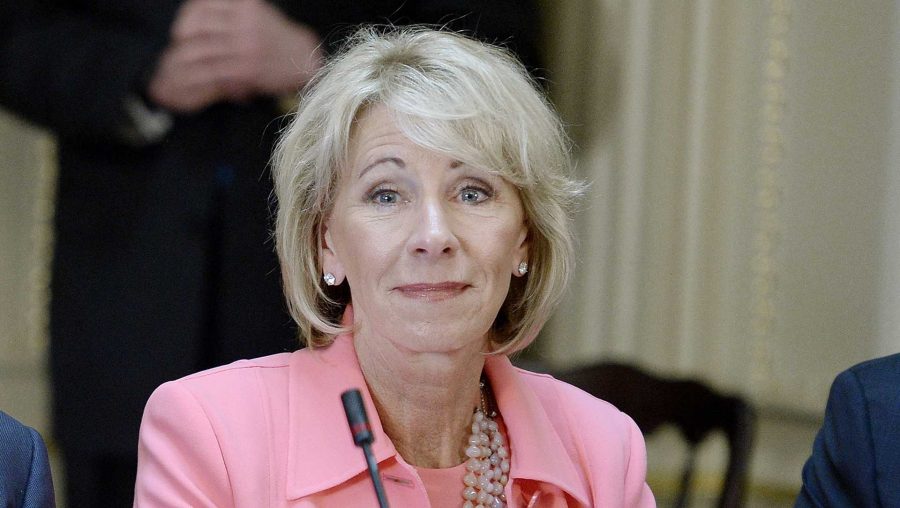Sarah Watson
Sarah-e-watson@uiowa.edu
Secretary of Education Betsy DeVos announced on Sept. 7 her intention to change sexual-misconduct policy on college campuses by re-evaluating Title IX.
“It’s definitely disappointing to hear of any potential rollbacks to Title IX and the protections specifically under the ‘Dear Colleague’ letter,” said Susan Junis, an assistant director of the Rape Victim Advocacy Program. “We’ve made such advancements, especially in regard to sexual-assault policies.”
The President’s Student Advisory Committee on Sexual Misconduct sent a letter Tuesday to University of Iowa President Bruce Harreld urging them to release a statement committing the UI to upholding prior guidance from the previous administration’s Department of Education policies.
Jeneane Beck, the UI assistant vice president for External Relations, said in an email to The Daily Iowan that Harreld will respond to the committee.
Representatives from UI organizations including RVAP, UI Student Government, and Women’s Resource and Action Center, said they will not stop their programs’ efforts to provide help for victims of sexual assault.
“The bottom line when it comes to any federal legislation, our role is to stand by survivors,” Junis said. “In that sense, our role is not changing.”
Title IX was introduced in 1972 to prevent sex discrimination and sexual harassment, and the Obama administration added a “Dear Colleague” letter as a
guideline for sexual-assault intervention on college campuses in 2011.
Some critics, such as DeVos, think the legislation gives the institution too much meddling power and ignores the rights of the accused.
“There are men and women, boys and girls, who are survivors, and there are men and women, boys and girls who are wrongfully accused,” DeVos said in her Sept. 7 speech. “I’ve met them personally. I’ve heard their stories. And the rights of one person can never be paramount to the rights of another.”
According to the National Sexual Violence Resource Center, three studies conducted in the past 15 years have found false accusations to account for fewer than 8 percent of reports.
“I think the statements put forward by the secretary of education on Thursday were really focused on equivocating the experience of victims with the experience of wrongly accused individuals,” Junis said.
While DeVos did not specifically address how the Education Department plans to replace the policies, the UI plans to continue advocating for its students.
“I do want to take a minute to reiterate that sexual misconduct and violence on the UI campus will not be tolerated,” UI Vice President for Student Life Melissa Shivers wrote in an email to the UI community Sept. 8. “We will continue to be advocates and allies for our students. The University of Iowa has a committed team working collaboratively to prevent sexual misconduct and violence, as well as provide support to survivors and hold offenders accountable on campus.”
WRAC Director Linda Kroon said Title IX has helped the program grow.
“The guidance that was issued back in 2011, which is what she’s talking about reviewing, and rescinding, and replacing, really helped us move forward in a number of ways on college campuses with how we address sexual assault,” Kroon said.
RVAP is another campus service that provides free, confidential support services to anyone affected by sexual violence.
“We’ve seen that a lot of survivors have been really terrified of what this might mean for their case or for future cases,” Junis said. “We always want to send a message that if anyone is struggling with that at all to reach out to us.”
UISG works to support a number of programs on campus that educate students about sexual violence.
“Regardless of the decision, people need to be educated on this issue,” said Hira Mustafa, the director of health and safety for UISG. “It is encouraging what we are already doing of recognizing how important it is for students to be involved in this conversation.”



